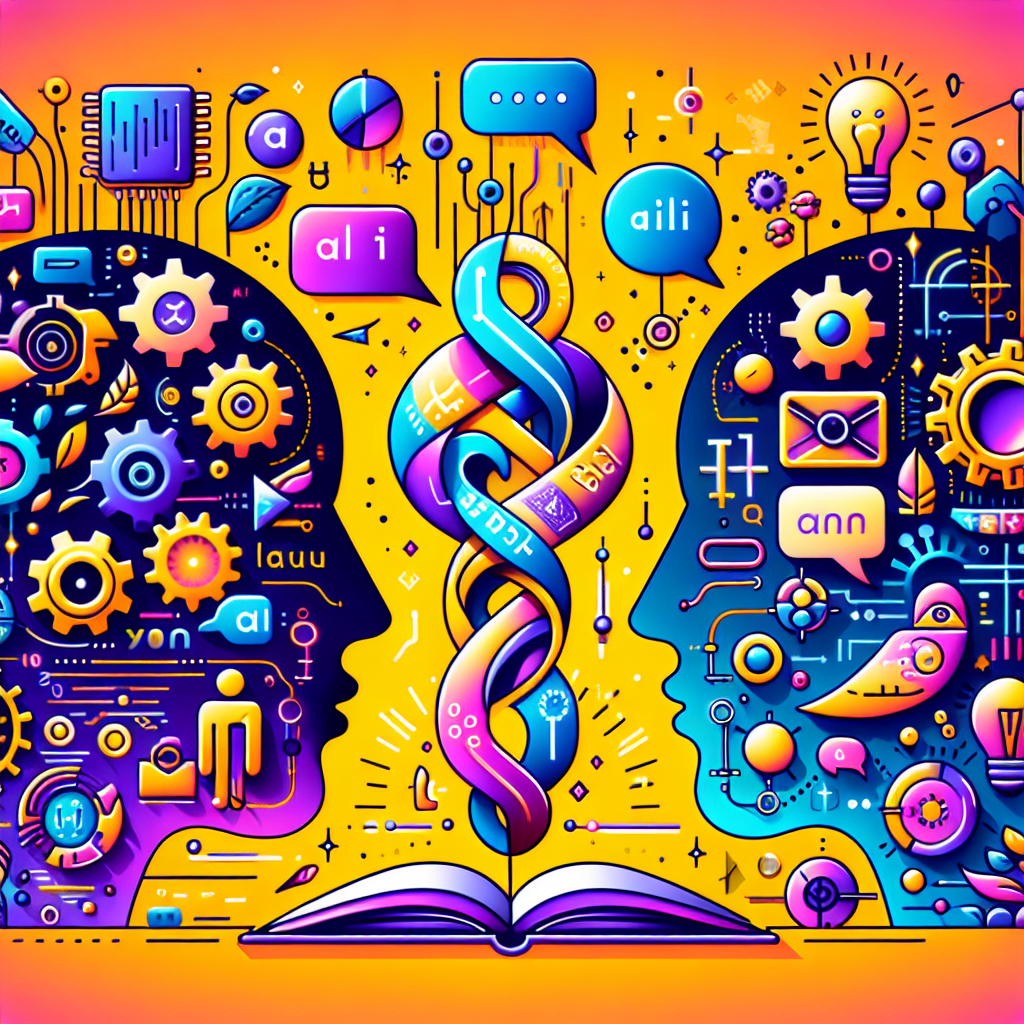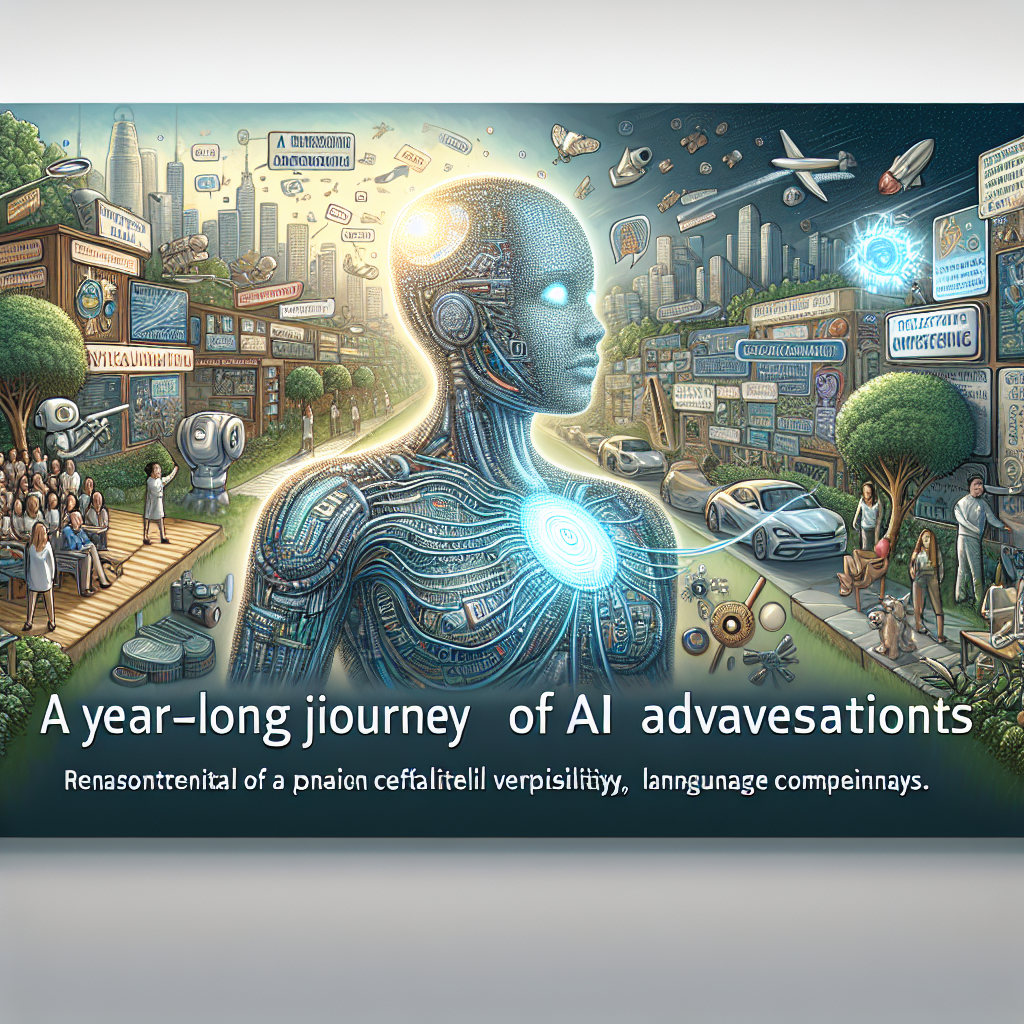Imagine a world where a virtual AI assistant can generate text, analyze data, and even summarize information for you. That's exactly what ChatGPT, an AI created by OpenAI, has been doing for the past 12 months. However, the rise of AI has sparked fears of a significant change in human civilization. While AI has the potential to automate tasks and put many people out of work, it has also been found to have biases and generate discriminatory content. What's more, cybercriminals are now using AI models like ChatGPT to build malware and other cyberweapons. The potential impact of AI on jobs has been referred to as a “white collar apocalypse,” leading to a heated debate on its overall impact. Will it benefit workers or pose risks to humanity? With concerns about the potential loss of control over superintelligent AI and issues of accuracy, it is clear that regulations and guidelines are needed to address these concerns and ensure the responsible use of AI.

ChatGPT's Creation and Impact
Introduction to ChatGPT
ChatGPT, an AI language model developed by OpenAI, has been making waves in the AI community since its creation 12 months ago. It is a state-of-the-art model that uses deep learning techniques to generate human-like text responses. The model has been trained on a vast amount of internet data and has the ability to understand and generate coherent text on a wide range of topics.
12 months of AI excellence
Over the past year, ChatGPT has gained immense popularity and has been the subject of great interest among researchers, developers, and the general public. It has shown remarkable progress and has significantly improved the quality of language generation compared to its predecessors. OpenAI has continuously refined and updated the model to enhance its performance.
Potential impact on human civilization
The rise of AI has raised concerns about its potential impact on human civilization. While AI has the capability to automate tasks and improve efficiency, there are fears that it could lead to job displacement on a massive scale. As AI systems become increasingly capable, there is a valid concern that many jobs, particularly those involving routine and repetitive tasks, may be taken over by AI-powered automation. It is crucial to examine the potential consequences of AI technologies like ChatGPT and how they may reshape the workforce and socioeconomic landscape.
AI Automation and Job Displacement
Rise of AI automation
AI automation is a rapidly growing field and has the potential to revolutionize various industries. With advances in machine learning and natural language processing, AI systems like ChatGPT can perform tasks that were previously thought to be exclusive to humans. This includes tasks such as customer service interactions, content generation, and data analysis. The ability of AI to automate these tasks has the potential to increase productivity and streamline processes.
The fear of job displacement
While AI automation brings significant benefits, there is also a fear that it will result in widespread job displacement. Certain sectors that heavily rely on routine tasks, such as manufacturing and customer support, are particularly susceptible to automation. This has sparked concerns about unemployment rates and the impact on workers who may be left without suitable job opportunities.
White collar apocalypse
Traditionally, concerns about automation and job displacement have focused on blue-collar workers. However, with the advent of sophisticated AI models like ChatGPT, there is now a growing worry about a “white collar apocalypse.” Jobs in fields such as law, finance, and journalism, which were once deemed safe from automation, are now at risk. The ability of AI to analyze data, generate reports, and even write articles poses a significant threat to professionals in these industries.

Capabilities and Limitations of ChatGPT
Language generation and summarization
ChatGPT's primary strength lies in its language generation capabilities. It can generate coherent and contextually relevant text responses that mimic human conversation. This makes it a valuable tool for applications such as chatbots and virtual assistants.
Additionally, ChatGPT has proven to be proficient in summarizing information. It can analyze lengthy texts and extract key points, providing a concise summary that can save time for users.
Data analysis abilities
With its ability to process and interpret large amounts of data, ChatGPT also excels in data analysis tasks. It can identify patterns, detect anomalies, and extract meaningful insights from complex datasets. This makes it a valuable asset for industries that rely heavily on data-driven decision making, such as finance, marketing, and research.
Biases and discriminatory content
One major concern with ChatGPT, and AI models in general, is the presence of biases and the generation of discriminatory content. The model learns from the data it is trained on, which can sometimes contain biased information and implicit prejudices. As a result, ChatGPT may inadvertently generate responses that perpetuate or amplify biases. OpenAI acknowledges this issue and is actively working to reduce biases in its models.
Issues with accuracy and fictitious information
While ChatGPT has made impressive strides in language generation, it is not without limitations. The model can occasionally provide inaccurate information or generate fictitious details. This can be problematic, especially when users rely on the model for factual and reliable information. OpenAI continues to address these limitations and strives for ongoing improvements to enhance accuracy and reliability.
Cybersecurity Concerns with AI
AI models as tools for cybercriminals
As AI models like ChatGPT become more sophisticated, they are not just tools for positive applications but also potential assets for cybercriminals. Malicious actors can misuse AI to orchestrate attacks, bypass security measures, and facilitate cybercrime. The misuse of AI technology poses significant challenges for cybersecurity professionals who need to stay steps ahead to combat these threats effectively.
Malware and cyberweapons powered by AI
The integration of AI into cybersecurity practices has both positive and negative implications. On the one hand, AI can enhance threat detection and response capabilities. On the other hand, AI-powered malware and cyberweapons are becoming increasingly prevalent. These tools leverage AI algorithms to evade detection, launch sophisticated attacks, and exploit vulnerabilities in computer systems. The constant battle between cybersecurity experts and cybercriminals using AI showcases the pressing need for robust defense mechanisms.
Debates on the Impact of AI
Differing opinions on AI's impact on workers
The impact of AI on the workforce is a subject of debate among experts and scholars. Some argue that AI will create new job opportunities, where humans and AI work together to enhance productivity and efficiency. These proponents point out that AI can empower workers by automating mundane tasks, freeing them up to focus on more creative and strategic work.
However, others express concerns that AI will lead to significant job displacement. They argue that AI's ability to perform tasks traditionally carried out by humans, combined with its scalability and cost-effectiveness, may render many jobs obsolete. The extent to which AI will impact the labor market remains uncertain, but it is clear that proactive measures need to be taken to mitigate potential negative consequences.
Potential benefits for workers
While fears of job displacement persist, there are also potential benefits for workers in an AI-driven world. AI technologies like ChatGPT can augment human capabilities and enable workers to focus on tasks that require critical thinking, problem-solving, and creativity. By automating routine and mundane tasks, workers can be freed up to engage in more fulfilling and intellectually stimulating work. AI has the potential to enhance job satisfaction and enable workers to develop new skills that are in high demand in a rapidly evolving job market.
Risks and concerns for humanity
Despite the potential benefits of AI, there are legitimate concerns about its impact on society. One major concern is the exacerbation of inequalities. If AI disproportionately benefits certain industries or individuals, it could widen existing economic disparities and exacerbate social inequality. Additionally, there are concerns about the ethical implications of AI, including issues of privacy, bias, and the potential for misuse.
Loss of control over superintelligent AI
Another area of debate revolves around the future development of superintelligent AI. Some experts argue that if AI systems continue to surpass human intelligence, there is a risk of losing control over these powerful technologies. The potential risks associated with superintelligent AI, such as unforeseen consequences and unintended behaviors, raise important questions about the ethical and responsible development of AI systems.
The Need for Regulations and Guidelines
Addressing concerns and ethical considerations
Given the significant impact AI can have on society, it is crucial to establish regulations and guidelines that address ethical concerns, protect individuals' rights, and ensure responsible use of AI technologies like ChatGPT. These regulations should focus on issues such as data privacy, transparency, fairness, and accountability. By setting clear guidelines, policymakers can provide direction for developers and users of AI, fostering an environment that promotes the ethical and responsible deployment of these technologies.
Ensuring responsible use of AI
To avoid the negative consequences associated with AI, it is essential to prioritize the responsible use of AI systems. Developers and organizations should conduct thorough testing and validation of AI models to ensure their accuracy, reliability, and lack of bias. Transparency regarding data sources and model behavior can help address concerns about biases and discriminatory content. Additionally, ongoing monitoring and accountability mechanisms should be in place to detect and address potential risks or unintended consequences.
In conclusion, ChatGPT's rapid development and impact on AI exemplify the progress being made in language generation and understanding. While there are concerns about job displacement, biases, and cybersecurity risks associated with AI, there is also recognition of the potential benefits for workers and society as a whole. With effective regulations and guidelines, AI can be harnessed responsibly to improve productivity, enhance human capabilities, and create a more equitable and inclusive future. It is vital that stakeholders work together to address the challenges and steer AI development towards a positive and beneficial direction.